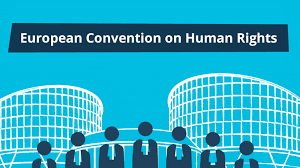Understanding the European Court of Human Rights (ECHR)

Introduction to the ECHR
The European Court of Human Rights (ECHR) is an essential institution in safeguarding human rights across Europe. Established in 1959, the court was created to interpret and enforce the European Convention on Human Rights, a treaty that aims to protect the human rights and fundamental freedoms of individuals within member states of the Council of Europe. The ECHR plays a vital role in promoting justice and equality by adjudicating cases brought before it by individuals, states, and various organisations, reflecting its significance in contemporary society.
Recent Developments in the ECHR
In recent months, the ECHR has been at the centre of attention due to several high-profile cases. One prominent issue addressed is the treatment of refugees and asylum seekers. A ruling from early 2023 reinforced the necessary protections afforded to individuals facing deportation to countries where their rights may be endangered, showcasing the court’s commitment to upholding human rights even in politically charged conditions.
Moreover, the ECHR has also passed judgment on cases related to freedom of expression, particularly concerning journalists and political activists across Europe. The court’s decisions emphasise the importance of free speech in a democratic society and counter attempts by governments to suppress dissent through judicial mechanisms.
The ECHR’s Response to Global Challenges
The ECHR is not immune to the challenges posed by emerging global concerns, particularly the impact of the COVID-19 pandemic on civil liberties. As governments implemented lockdowns and public health measures, the ECHR faced an influx of applications alleging violations of human rights. The court’s rulings in this context demonstrated a balance between safeguarding public health and preserving individual rights, thus reaffirming its pivotal role during crises.
Conclusion: The Future of the ECHR
As the European landscape continues to evolve, the role of the ECHR remains increasingly significant. The ongoing scrutiny of state actions and their compliance with human rights standards is essential to prevent legal overreach. Furthermore, with new issues like digital privacy and climate rights emerging, the ECHR is expected to adapt its interpretations and rulings accordingly.
In conclusion, the European Court of Human Rights serves as a cornerstone for protecting fundamental rights across Europe, continually addressing contemporary issues while ensuring that justice is accessible to all. Its future developments will be vital not just for individuals seeking justice but also for the collective movement towards an equitable society in Europe.









